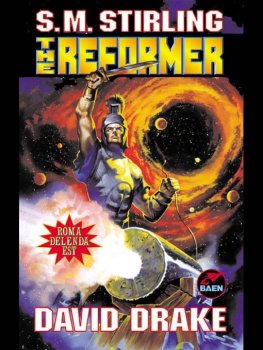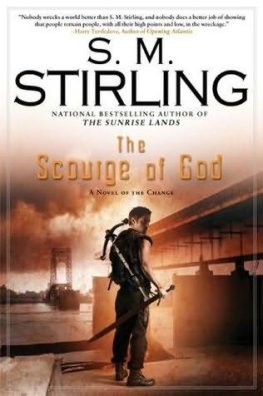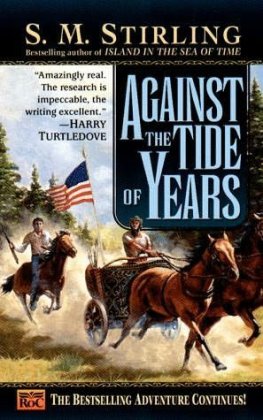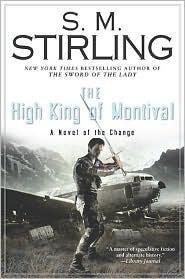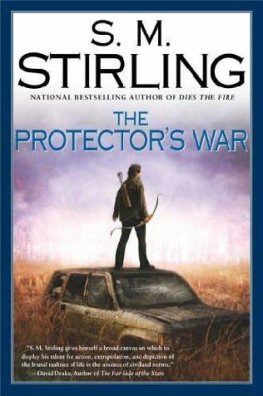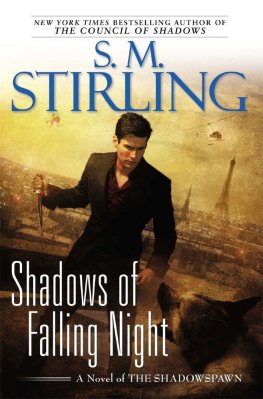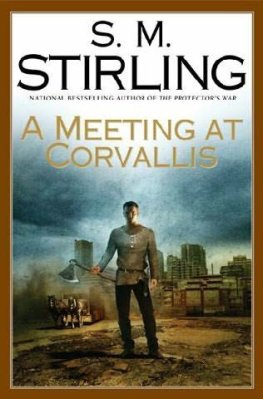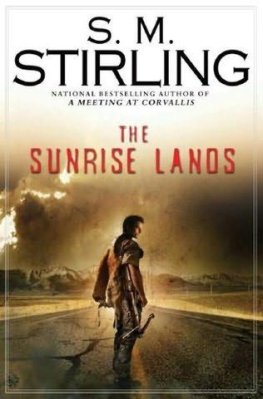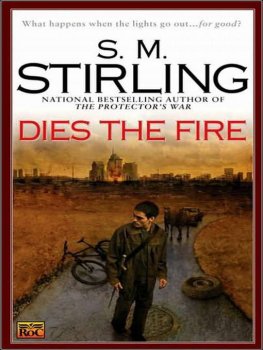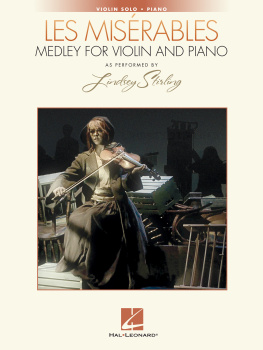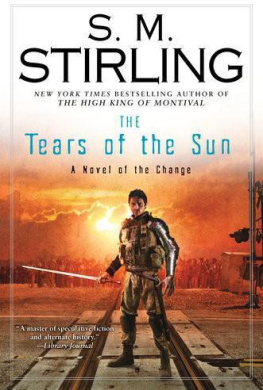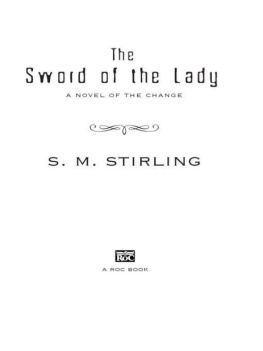S. Stirling - The Reformer
Here you can read online S. Stirling - The Reformer full text of the book (entire story) in english for free. Download pdf and epub, get meaning, cover and reviews about this ebook. genre: Science fiction. Description of the work, (preface) as well as reviews are available. Best literature library LitArk.com created for fans of good reading and offers a wide selection of genres:
Romance novel
Science fiction
Adventure
Detective
Science
History
Home and family
Prose
Art
Politics
Computer
Non-fiction
Religion
Business
Children
Humor
Choose a favorite category and find really read worthwhile books. Enjoy immersion in the world of imagination, feel the emotions of the characters or learn something new for yourself, make an fascinating discovery.
- Book:The Reformer
- Author:
- Genre:
- Rating:5 / 5
- Favourites:Add to favourites
- Your mark:
- 100
- 1
- 2
- 3
- 4
- 5
The Reformer: summary, description and annotation
We offer to read an annotation, description, summary or preface (depends on what the author of the book "The Reformer" wrote himself). If you haven't found the necessary information about the book — write in the comments, we will try to find it.
The Reformer — read online for free the complete book (whole text) full work
Below is the text of the book, divided by pages. System saving the place of the last page read, allows you to conveniently read the book "The Reformer" online for free, without having to search again every time where you left off. Put a bookmark, and you can go to the page where you finished reading at any time.
Font size:
Interval:
Bookmark:
S. M. Stirling, David Drake
The Reformer
ONE
The High City of Solinga had been the core of the ancient town once; first a warlord's castle, then the seat of the city council. Three centuries ago, when Solinga was capital of the Emerald League, several million arnkets of the League's treasury had mysteriously found their way into a building program to turn it into a shrine to the city's gods-to the Gray-Eyed Lady of the Stars, first and foremost.
Money well stolen and spent, Adrian Gellert thought, as the procession mounted the broad flight of marble stairs that led to the plateau. Right hand tucked into the snowy folds of his robe, left hand holding the gold-capped scroll that marked him as a Scholar of the Grove, he kept to the slow hieratic pace suitable for a religious occasion. About him gulls swooped and shrieked; before him stood the cream-white marble pillars, the golden roofs, the great forty-foot statue of the Maiden holding Her bronze-tipped spear aloft to guide the mariners home. Behind him was the tarry workaday reality of Solinga smelling of fish and offal and sea salt, narrow crooked streets and whitewashed walls peeling to show the mud brick, tile roofs and only occasionally the walls and colonnades and courtyard gardens of the rich. But here, amid the scent of incense and the light silvery tones of hand bells, was the ideal the reality served.
We may have fallen from our forefathers' power, but this at least we can say-that we alone gave godlike things to the gods, he thought with a melancholy pride that edged out the anxiety and grief of his father's funeral.
The procession halted as a priest confronted them, a blue-edged fold of his blanketlike mantle over his head like a hood. "Why do you come to this holy place?"
"To render homage to the Goddess, in such seemly wise as is allowed to mortal men," Adrian's uncle said, speaking as the eldest adult male of the Gellert clan. Besides, he was paying for the ceremony. "In memory of Ektar Gellert, a free citizen of this city, that the Maiden may judge him kindly; and in the name of his sons, Esmond and Adrian Gellert, that She may watch over them in the trials of life."
"Come, then, and do worship."
The procession resumed; Adrian, his brother Esmond, uncles, cousins, grandfathers, hangers-on, with hired musicians following behind playing double-pipes and lyres. Pilgrims and priests and citizens making sacrifice parted before them. Their sandals scuffed across the pavement, slabs of white-veined green marble edged with gold. They passed the Plinth of Victories, a huge column set with the beaks of captured warships; past the black-basalt fane of Wodep the War God, the pink and gold marble of Etat the All-Father, and at last to the great raised rectangle of the Maiden's fane. It was a simple affair of giant white columns, each ending in a riot of golden acanthus leaves. The roof was copper-green tiles, and all around from pediment to architrave ran mosaic panels done in gold glass, lapis, amber and semiprecious stones. Some showed the Goddess giving Her gifts to men-fire, the plow, the olive, ships, the art of writing. Others were scenes from the Five Year Festival, the city's knights on their velipads, the Year Maidens bringing the great embroidered shawl, the athletes naked in their iron pride.
"Follow, then," the priest said.
Hot charcoal fires burned in a pair of tall tripods of fretted bronze. Gravely, Esmond and Adrian strode up the steps. Each took a silver bowl from the acolytes, pouring a stream of translucent grains into the white-glowing bed. Fragrant smoke rose, bitter and spicy.
The others drew up a fold of their mantles to cover their heads as the priest raised his hands; the Goddess' moon was visible over the horns of the roof, the other two moons being below the horizon at this hour. Adrian's uncle led the sacrifice forward, a white-feathered greatbeast with four gilded horns and a myrtle wreath around each. It came to the altar willingly enough-drugged, he thought: no sense in courting a bad omen-and collapsed almost soundlessly as the broadaxe flashed home with a wet, heavy thud on its neck.
Slowly, the tall ebony and silver doors of the temple slid open, rolling soundlessly on bronze bearings. Adrian's mind reflexively murmured three citations and an epic poem on the building of the Maiden's Temple; all of them described the effect, and all of them inaccurately as far as he knew. The cult image came forth on brass rails set into the marble of the pronacs floor, gliding with oil-bath smoothness. It was hidden in a tall cedarwood and silver shrine, emblazoned with the full moon on all sides. At a touch the sides sank down to reveal a rock. Black, slagged and metallic-looking in spots with a trace of rust, a metorite and very ancient.
Adrian Gellert had long since been trained in the precepts of the Grove; that God was Number and Form, and all the lesser images merely avatars or imaginings of men unable to conceive of the One. God did not need to Do, only to Be-but he still felt a trace of numinous awe as he extended his hand. And of course a gentleman showed respect for the ancient cults.
"Scholar of the Grove-"
Adrian held up the scroll in his left hand.
"Scholar of the Blade-"
His brother Esmond raised his sheathed sword.
"Receive the blessing of the Goddess, your patron."
Adrian closed his eyes and let the hand rest on the sacred rock. It was cool, cooler than it should have been, and-
* * *
Where am I? Where am I?
He thought he screamed the words, but he had no lungs. No eyes, for surely even the darkest night at the bottom of the silver mines of Flowerhill was brighter than this. He was nothing but Fear, adrift in a world of midnight. Stroke. Heart attack.
Compose yourself, he thought sharply. Remember that anything that can happen, can happen to you. All men are initiates of the mysteries of death.
That was the comfort of philosophy, but a little hard to remember when one was only twenty-one.
Light. He blinked. . and saw a room around him. Furnished in an alien style, strange padded furniture, a fire burning in an enclosed brick space in one wall, tables and chairs of subtly foreign make. And a man standing there, a dark man with bowl-cut black hair. Odd clothes, something like those worn in the Western Isles, or even among the Southron barbarians; trousers, those marks of the savage, a curious tailored coat of blue with tails dangling behind. A curved sword and a holster with something rather like a carpenter's tool were lying on one table.
Either I have gone mad, or something very strange has happened, Adrian thought. He was conscious of his own terror, but it was distant, muted. He looked down at himself, and he was there again-not in the snowy draped robe of ceremony, but in an everyday tunic, with inkhorn and pen case slung from his belt.
"Adrian Gellert," the oddly-dressed man said; he spoke good Emerald, with a hint of a soft accent. "What is it that you desire?"
It was the manner of the Academy to teach with questions. He closed his lips on his own enquiries, on the fleeting ephemeral desires of every day, on the anxieties of his father's untimely death. That question had asked for truth. Perhaps there was truth in the old stories of Divine intervention in the lives of men.
"I want to know," he blurted.
The dark man nodded.
* * *
"An excellent dinner. Many thanks, Samul," Esmond said, from his couch across the table.
Adrian nodded and murmured something. His brother-in-law Samul Mcson had been a catch for his sister Alzabeta. A catch of sorts; the Mcson family was important in the dye trade and had a fish-sauce works whose products were sold by name as far away as Vanbert, the Confederacy capital. He'd never liked the man, and the sneer on the heavy fleshy features showed the feeling was returned. Also there was honey-glaze sauce on the front of his robe, which was rose-colored silk from the Western Isles.
Font size:
Interval:
Bookmark:
Similar books «The Reformer»
Look at similar books to The Reformer. We have selected literature similar in name and meaning in the hope of providing readers with more options to find new, interesting, not yet read works.
Discussion, reviews of the book The Reformer and just readers' own opinions. Leave your comments, write what you think about the work, its meaning or the main characters. Specify what exactly you liked and what you didn't like, and why you think so.

